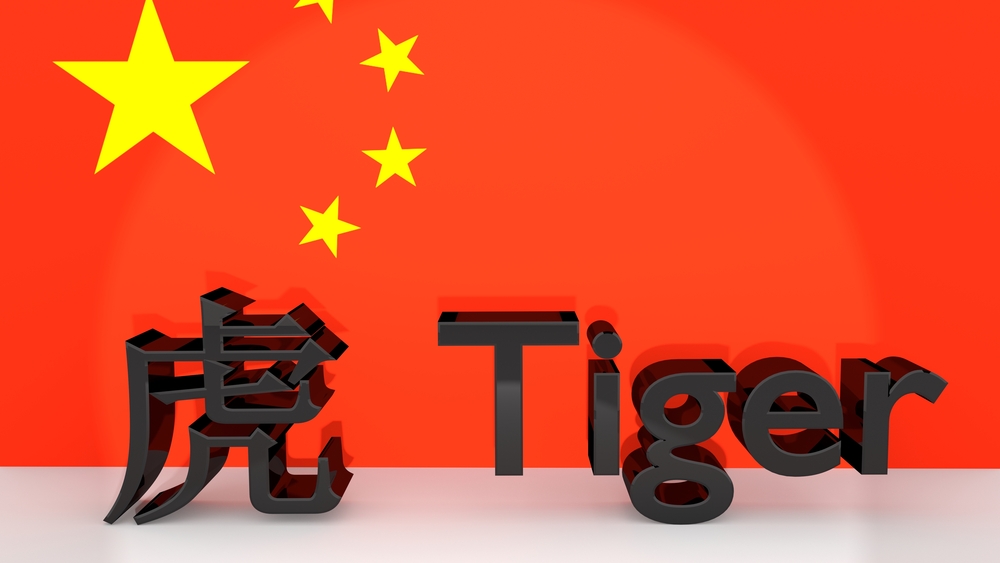‘Big Daddy Xi’ Leads China’s Charge

Please note that we are not authorised to provide any investment advice. The content on this page is for information purposes only.
This year marks the 40th anniversary of the death of Chairman Mao and with it one of the lowest points in the political history of the People’s Republic of China. The nation that had stood up in 1949 was, at the time of Mao’s death, a much poorer and weaker society following decades of failed economic policies and constant social mobilisation. Out of this mess, a new generation of leaders embarked on a project to rebuild the country and make China an indispensable part of the international economy and global society.
This year marks the 40th anniversary of the death of Chairman Mao and with it one of the lowest points in the political history of the People’s Republic of China. The nation that had stood up in 1949 was, at the time of Mao’s death, a much poorer and weaker society following decades of failed economic policies and constant social mobilisation. Out of this mess, a new generation of leaders embarked on a project to rebuild the country and make China an indispensable part of the international economy and global society.
This generation made deliberate efforts to build a model of leadership that could withstand generational succession and internal threats to the party’s legitimacy. This so-called collective model of leadership sought to legitimise rival factions in the party, allow for greater local government experimentation in policy and to de-politicise civil society. ‘Good’ leaders were those who quietly achieved economic growth targets. A ‘bad’ leader was one who forced people to spend their time glorifying the Party.
However, since President Xi Jinping and the fifth generation of leadership took power at the 18th Party Congress in 2012, the old rules of Chinese political leadership, including the collective model, have seemingly reverted. The most striking change has been the reinstitution of the paramount leader as the undisputable ‘core’ of the Chinese political system. This arrangement, once considered a political taboo, has decisively re-emerged at a critical time in modern Chinese history when the Party, the economy and the nation face serious challenges to their future viability.
Xi now enjoys more personal influence over a wider range of areas than any previous leader. In only a few short years, power has been pulled towards the centre of the Chinese political system away from local government, civil society and non-Party actors.
Areas such as propaganda, internal security and economic reform, which had in previous generations been delegated to other politburo members, are now firmly under his direct control. His ideological framework of the ‘Chinese Dream’ and ‘rejuvenation of the Chinese nation’ puts the Party and politics back at the centre of Chinese life, with ‘Big Daddy Xi’ cultivating an image as father of the great Chinese family.
The purpose of Xi’s centralised model of political leadership is to increase the Communist Party’s capacity to deal with the problems it faces on a range of fronts. Perceived threats to the regime’s legitimacy have been put on notice. Xi has moved to change the bases of legitimacy from good economic management, pushing for a more nationalistic and globally ambitious People’s Republic where GDP growth numbers are less important to the success of the government in the eyes of the people.
A more centralised leadership model for China is a double-edged sword. On one hand, Beijing will now have the power to advance policy in areas where it was previously unable to, due to the reform-era desire to empower local and diverse interest groups. Greater regulatory power for environmental agencies, reforms to inefficient state-owned enterprises and a less corrupt public sector are just some goals, which are easier to achieve with a more powerful centre.
On the other hand, increased power comes with its own set of risks. The media, a rent-seeking bureaucracy, the influence of Western culture, an unregulated internet, an independent civil society and China’s maritime neighbours continue to endure greater marginalisation as the leadership affirms the position of politics before all other matters.
Many Chinese people worked hard over the last three decades to make China a less authoritarian society, focused more on economic rationalism than issues of ideological correctness. This is likely to be reversed if power continues to steadily move away from a paradigm of collective leadership to one of a strongman at the centre.
The debate over whether Xi Jinping is the new Mao Zedong is less important than the role particular models of Chinese leadership play in the country’s development from one of the world’s poorest nations to its current position as a ‘moderately prosperous society’ that is recognised as the great power it so desperately wants to be. The current generation of Chinese leaders is risking a great deal on its turn to the centre. Only time will tell if China’s latest strongman will succeed where its previous one did not.
China’s leadership model goes back to the future is republished with permission from East Asia Forum




